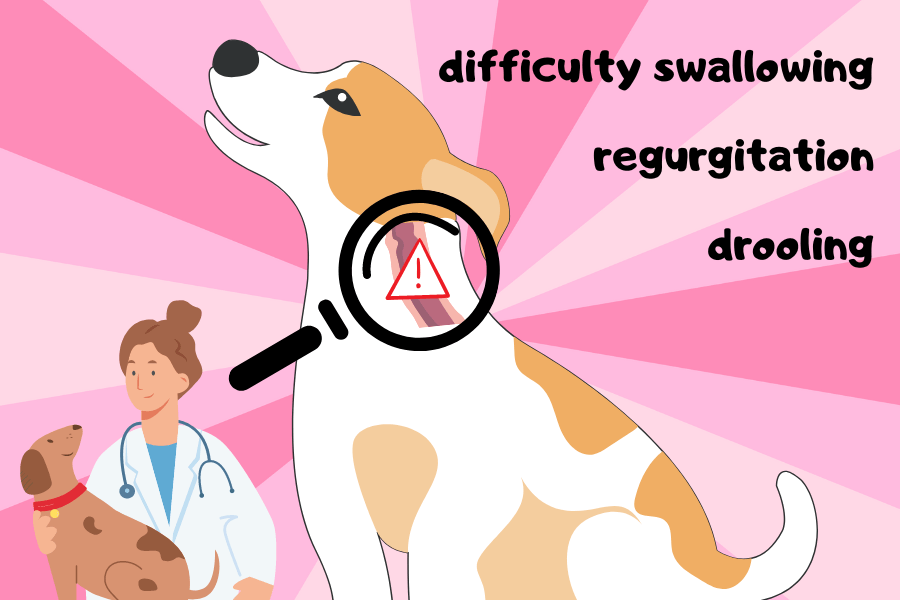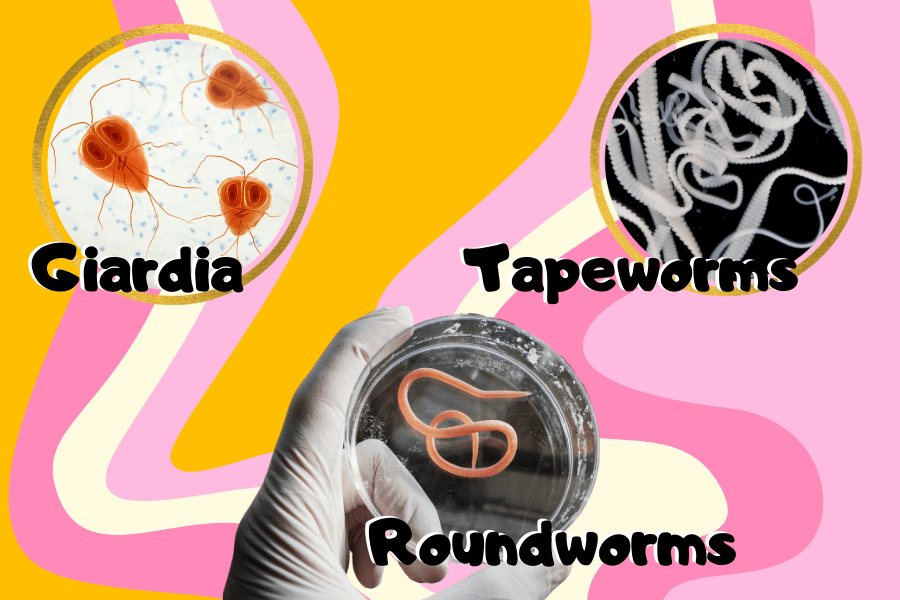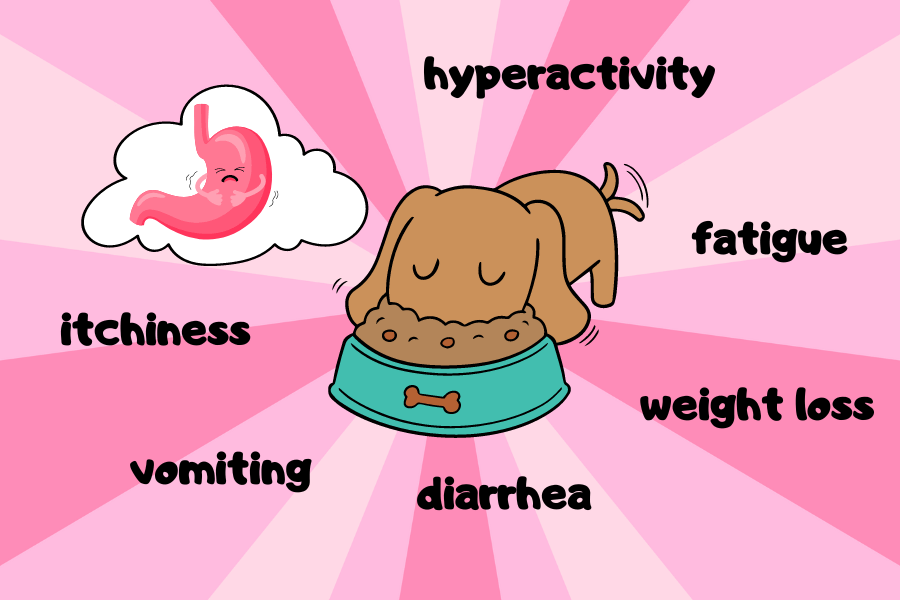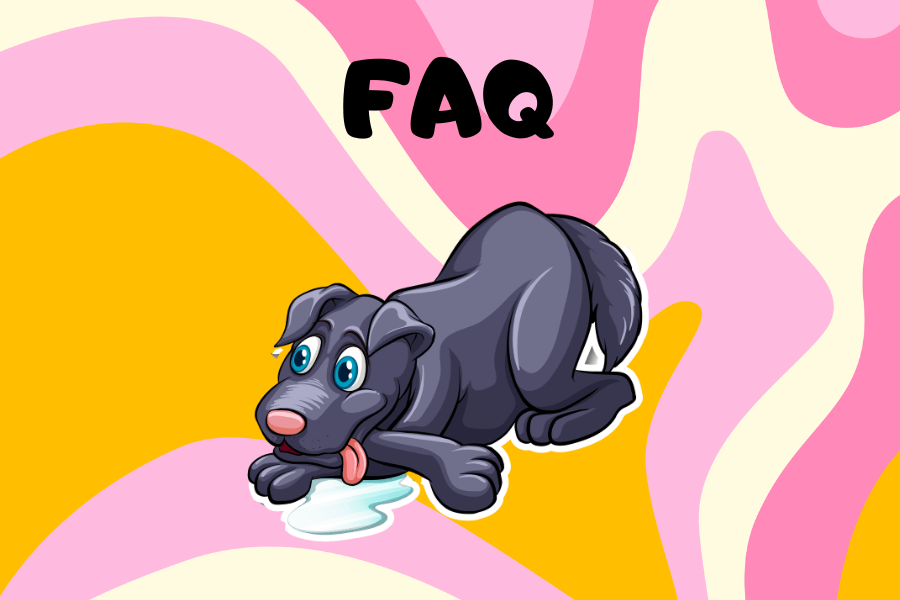Possible Causes
- Drinking too much water too quickly
- Drinking water that’s too cold
- Esophageal dysfunction
- Drinking water contaminated by chemicals, pesticides, animal waste, etc.
- Gastrointestinal blockage
- Parasites such as giardia, tapeworms, or roundworms
- Hypothyroidism
- Food sensitivities
Before assuming that your dog is simply experiencing an upset stomach, you may want to rule out more serious conditions that could be causing vomiting. Here are 8 potential reasons why your dog may be throwing up after drinking water – read up!
Too Much Water Too Fast
The answer to “why does my dog throw up after drinking water?” is not so obvious. If your furry friend is gulping down large amounts of water and then promptly vomiting, it’s likely they’re just drinking too much too fast. Their stomachs cannot process all that liquid at once, and they end up expelling some of it.
To avoid this, try breaking up their water consumption into smaller sessions throughout the day, or invest in a water fountain designed specifically for pets. These fountains encourage slower drinking by releasing a continuous stream of water, which also helps keep the water fresh. If you prefer using a water bowl, don’t fill it all the way up, but add water throughout the day.
Too Cold Water
When a dog drinks water that is too cold, their stomach may react by spasming and expelling the water through vomiting. This is nothing to worry about – next time, give your dog lukewarm water instead of cold. If the vomiting persists, see your vet.
Esophageal Dysfunction
„Why does my dog throw up after drinking water?” It may be due to esophageal dysfunction. This condition can be caused by anatomic abnormalities, neurologic disorders, or gastroesophageal reflux disease (GERD). If your dog has esophageal dysfunction, they may have difficulty swallowing, regurgitate their food, or have trouble keeping water down.

Contaminated Water
If you’re wondering, “why does my dog throw up after drinking water?”, check the water your dog drinks. Waterborne illnesses are a real danger for dogs. Just like us, they can get sick from drinking water that’s contaminated with bacteria or other harmful microbes. This can be true if they drink from:
- ponds and lakes that are polluted with animal waste;
- standing water (like in puddles or ditches) that may be contaminated with sewage;
- swimming pools that haven’t been properly chlorinated.
Dogs can also get sick from drinking water that’s been contaminated with fertilizers or pesticides. Symptoms of waterborne illness in dogs can vary depending on the type of bacteria or virus they’ve been exposed to, but often include:
- vomiting;
- diarrhea;
- lethargy;
- fever;
- loss of appetite;
If you think your dog may have ingested contaminated water, contact your veterinarian right away. They’ll do tests to determine if your dog is ill and, if so, what type of treatment they’ll need. In some cases, such as with E. coli or Salmonella poisoning, dogs may need to be hospitalized for intravenous fluids and other supportive care. With prompt treatment, most pets will make a full recovery.
Gastrointestinal Blockage
If your dog throws up soon after drinking water, it may be because of a blockage in his gastrointestinal tract. This is a serious condition that requires immediate medical attention.
The blockage may be caused by something your dog ate, such as a bone or toy. A foreign object like that can be stuck in his digestive system for a long time. If the blockage isn’t removed, it can cause serious health problems, including death.
Editor’s Note ✏️
Dogs, with their irresistibly curious natures, sometimes get into the most unexpected places. They might snack on trash or even bite through packaged food when their owner isn’t looking. If your pup is particularly mischievous, keep an eye on them – a few moments of extra care could save lots of trouble down the line! An X-ray can help identify any potential hazards lurking in their belly to make sure it’s removed quickly and safely.
Parasites
Giardia is a type of parasite that can infect your dog’s intestines, and it’s usually contracted by drinking contaminated water. Symptoms of giardiasis include vomiting, diarrhea, and weight loss.

Other parasites that can cause vomiting in dogs include roundworms and tapeworms. These parasites can be contracted in a number of ways, such as contact with contaminated soil or eating infected prey. If you think your dog has parasites, take them to the vet for treatment.
Hypothyroidism
Hypothyroidism occurs when the thyroid gland doesn’t produce enough hormones. This can lead to a number of different symptoms, including vomiting. Treatment typically involves medication, so it’s important to get a diagnosis as soon as possible.
Food Sensitivity
Dogs can be sensitive to certain ingredients in their food, just like people. If your dog is throwing up after drinking water, it may be because they have a sensitivity to something in their food. There are a few things you can do to figure out if this is the case:
- Talk to your vet: They will be able to help you rule out any other possible health issues that could be causing the vomiting.
- Try a different food: If you think your dog may be sensitive to something in their food, try switching to a different brand or formula. You may also want to talk to your vet about a hypoallergenic diet.
- Keep an eye on your dog’s symptoms: If you notice that your dog only throws up after drinking water, and not at any other time, it’s likely that food sensitivity is not the cause.

How to Help Your Dog?
Dehydration is a serious concern for dogs, and can happen quickly, especially in hot weather. If your dog is vomiting and seems to be losing fluids faster than he’s taking them in, it’s important to take action:
- See your vet ASAP. This is especially important if your dog is vomiting repeatedly or showing other signs of illness, such as lethargy or loss of appetite.
- Offer small amounts of water at a time. If your dog is able to hold down water, offer it to him in small sips or spoonfuls, so he doesn’t overdo it and start vomiting again.
- Try an electrolyte solution. If your dog is dehydrated, an electrolyte solution can help replace lost fluids and minerals. You can find these solutions at most pet stores or online.
- See if he’s interested in ice cubes. Some dogs will lap up ice cubes when they’re dehydrated, so it’s worth a try if your dog is able to hold down water.
- Monitor his progress. If your dog is vomiting less frequently and seems to be keeping down fluids, he’s probably on the road to recovery. But if his condition worsens, or he doesn’t seem to be improving, call your vet.
To sum it up, if you’re asking “why does my dog throw up after drinking water?”, there are multiple possible explanations. Some of the issues that could be causing your dog to vomit could be very serious, so don’t hesitate to get professional help.
FAQs About Dogs Vomiting Water & Food

Why Does My Dog Throw Up Water in the Morning?
When your pup’s tummy is rumbling, it can lead to watery surprises! Many dogs throw up right after drinking in the morning due to an empty stomach. To prevent this from happening again and keep Fido happy and healthy, try feeding him wet food for breakfast. This will help reduce any digestive distress.
Why Does My Dog Throw Up After Eating?
It could be due to a few things such as wolfing down dinner too quickly, eating more than they should have or even feeling anxious during mealtime. In some cases though, it may also be an indication that something is amiss internally like megaesophagus; a disorder which affects proper food transition from mouth to stomach.
Can a Dog Drink Water After Throwing Up?
No matter how thirsty your pup may be after throwing up, it’s best to resist giving them a big drink. Instead, offer them teaspoons of water every hour based on their body weight. If your dog weighs 20–25 pounds, they could have 20–25 teaspoons (half a cup) instead of gulping the whole bowl down! This helps protect against further episodes and can help get Fido feeling better in no time.
Why Does My Dog Throw Up After Drinking Water and Not Eat?
Has your pup been skipping meals lately? It’s not uncommon for dogs to avoid eating after throwing up, particularly if they ingested too much water. Gastroenteritis is another possible culprit of their vomiting and lack of appetite.
Why Is My Old Dog Throwing Up After Drinking Water?
Your beloved older dog may be at risk of developing a condition where the muscles in their throat and esophagus are weakened, making it difficult for water to travel down correctly. This could cause them to suffer from an unpleasant vomiting reflex after having consumed liquid.
Lucas Taylor is a veterinary assistant, freelance journalist and single dad who lives in the suburbs with his three pups: Ruby, Nala, and Woody. He has one cat named Pepper. When he’s not writing articles or working at the vet clinic, Lucas loves cooking French cuisine for himself and friends at home. One of Lucas’ favorite things to do is paddleboard with his son Noah and their canine companions. Pepper is the homebody of the bunch – she loves chilling on the couch.












